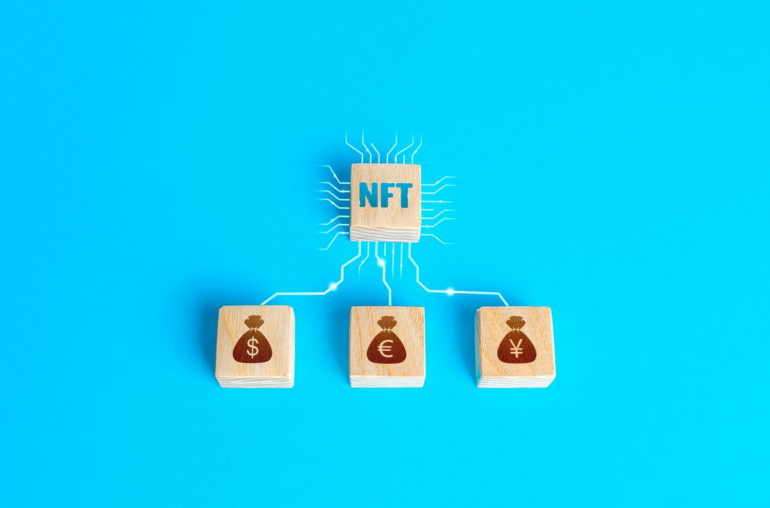DataDecisionMakers
We are excited to bring Transform 2022 back in-person July 19 and virtually July 20 – 28. Join AI and data leaders for insightful talks and exciting networking opportunities. Register today!
Those not familiar with the inner workings of the venture capital industry tend to have a distorted view about how early-stage companies raise funds. Many think of Shark Tank — a group of VCs sitting around in their high-back leather chairs holding court with an unending line of CEOs pitching them for money. In reality, it’s not a parade of pitches, and being an early-stage investor isn’t like Shark Tank at all. Founders don’t line up around the block waiting to woo VCs. In fact, just the opposite is happening. VCs are lining up and begging founders to take their money.
The most obvious reason for this shift is the incredible amount of venture capital waiting to be invested — plenty has been written about that. But a less noticed factor is the reversal of the information flow and the emergence of the online feed. The feed is an amalgamation of different sources of info, including social media, forums, websites, blogs, virtual worlds and so on, where the most interesting startups start flashing red. They’re on the radar because they’re consistently in the feed.
Unlike warm introductions of the past, where founders were introduced to venture capitalists, VCs are actively scouting the feed in search of their next portfolio company. And they’re using a variety of methods — algorithms to crawl the web, subscribing to huge amounts of purchased data, and employing armies of people to search the feed on their behalf.
Here’s a look at this new era in VC.
Transform 2022
Join us at the leading event on applied AI for enterprise business and technology decision makers in-person July 19 and virtually from July 20-28.
In 2021, we witnessed venture capital soar to new heights. According to data from Crunchbase, global venture investment last year totaled $643 billion, compared to $335 billion for 2020—marking 92% growth year over year. And funding grew across all stages, with early-stage outpacing seed and late-stage. Early-stage startups raised $100 billion more last year than in 2020, collectively raising $201 billion.
This tsunami of capital has led to jaw-dropping valuations, a fierce competition for deals, and a market that is increasingly competitive for startup attention. Investors want in on the world’s next great companies, meaning startups are in the driver’s seat and Sand Hill isn’t their only destination.
While warm intros are still a fundamental way of getting in front of investors, unlike years past, founders no longer have to seek out venture capital and find an “in.” For early-stage companies, it’s not about who you know, but rather who knows about you. And that’s where the feed comes into play.
The online feed has emerged as a valuable tool for venture capital. Previously, the feed was an investor’s email inbox where business associates, colleagues, and friends sent warm intros in the form of, “Hey, I know about this startup and you should really check them out.” There were entire intro networks, where VCs shared investment opportunities. VCs also relied on accelerator programs, such as Y-Combinator and TechStars.
Today, VCs are increasingly turning to data science. Many investors are buying entire data feeds and subscribing to huge amounts of purchased data about the startup ecosystem. They’re also utilizing machine learning algorithms and crawlers to scour the web — LinkedIn, GitHub, and even Facebook, for example — looking for what’s known as a signal, an indication that a project, person, or company is doing something interesting. These signals populate searchable databases that allow investors to target certain companies and individuals.
For example, among the millions of entries, an investor might filter to see only startups with more than 20 employees and who have grown their Twitter followings by 100% over a six-month period. This might narrow the field from millions of companies to hundreds. From there, an investor can add more filters such as when a company last raised money and who invested. If the investor recognizes a name, they can reach out and ask for an introduction to the startup founder or team.
No matter how the discovery process is conducted, it’s clear that VCs are eager to find their next investment. But that doesn’t mean startups can sit back and wait for an investor to knock on their door. A founder’s primary job is to generate interest in their startup. In this new era of VC, this means consistently appearing in and standing out in the feed — flashing red for all to see.
The way to do this is to leave a trail of data breadcrumbs, specifically:
Seek out open-source communities or other avenues like Discord, Meetups, Twitter Spaces or Clubhouse. The feed will notice your efforts and give weight to the size of the community, the number of people in attendance, and so on. For example, an investor (with the aid of crawlers and AI bots) will take notice if you have 1,000 people on your Discord server where you just dropped a NFT.
Once you rank in the feed, you can skip the warm intros and white-knuckle drive up Sand Hill Road. The fear of missing out will prompt investors, from all regions and corners of the globe, to get in touch with you.
Issac Roth is a founder and CEO who’s created and sold multiple enterprise software companies.
Welcome to the VentureBeat community!
DataDecisionMakers is where experts, including the technical people doing data work, can share data-related insights and innovation.
If you want to read about cutting-edge ideas and up-to-date information, best practices, and the future of data and data tech, join us at DataDecisionMakers.
You might even consider contributing an article of your own!
Read More From DataDecisionMakers
Hear from senior executives at some of the world’s leading enterprises about their experience with applied Data & AI and the strategies they’ve adopted for success.
Join AI and data leaders for insightful talks and exciting networking opportunities in-person July 19 and virtually July 20-28.
© 2022 VentureBeat. All rights reserved.
We may collect cookies and other personal information from your interaction with our website. For more information on the categories of personal information we collect and the purposes we use them for, please view our Notice at Collection.


